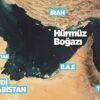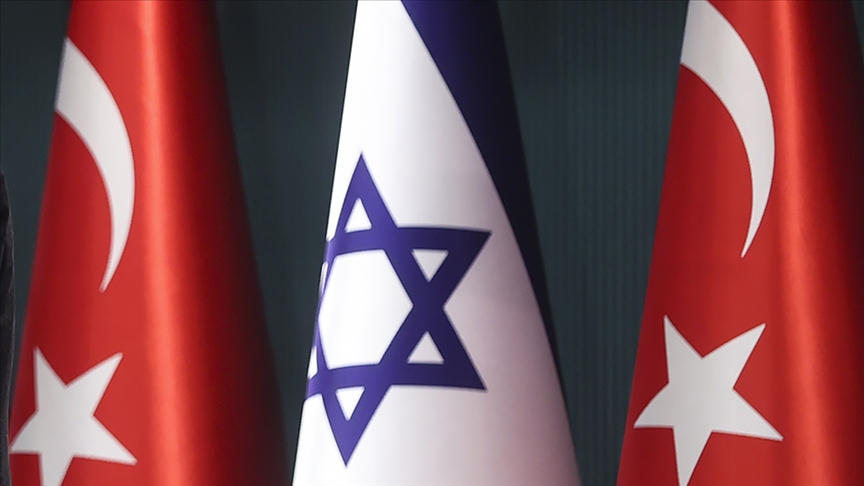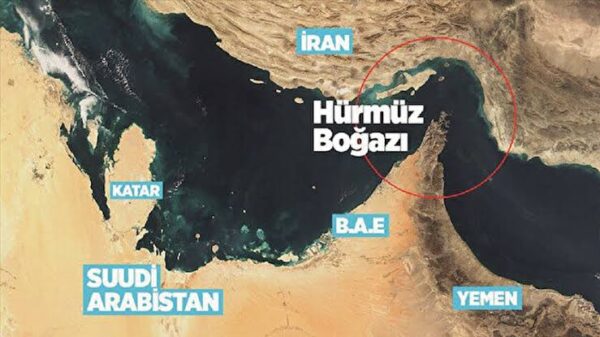Istanbul Canal, or as known in public opinion as the “Crazy Project”… It was proposed as a project to open a canal connecting the Marmara and Black Seas over the lands in the west of Istanbul. With this canal, another waterway parallel to the Bosphorus Strait would be opened, and it was planned to lay the foundation of a new economic center around this canal. However, the astronomical budget required for the project, problems that would arise with population growth, and the fact that it would affect the region’s ecology have sparked widespread public reaction. In contrast, a group of politicians and journalists have defended and supported the project, claiming it would eliminate the provisions in the Montreux Convention that restrict Turkey’s sovereignty over the straits. In this article, we will examine Istanbul Canal from a legal perspective, setting aside its military, political, and ecological impacts and risks.
Looking at the historical background of canal initiatives in Turkey, the idea of opening various canals had existed since the Ottoman Empire. The first of these was the Suez Canal, planned during the period of Sokullu Mehmet Pasha to expand to India by opening to the Indian Ocean. The project, postponed after Sokullu’s death, was only realized in the 19th century with the help of foreign companies. This canal, planned to be named Aziziye in honor of the Ottoman Sultan of the period, left Istanbul’s sovereignty with the loss of Ottoman control over Egypt. Another canal project was the Don-Volga Canal, which would connect the Black Sea to the Caspian. Planned at the beginning of the 18th century, this canal’s purpose was to facilitate dominance over Central Asia, Iran, and Azerbaijan. However, this canal was also prevented due to the Crimean Khanate’s own concerns. The idea of opening a canal to Istanbul is thought to have been first proposed by Mimar Sinan (Sinan Agha the Grand Architect). Although it was brought up again by various sultans in later times, work was never started. The straits began to become a problem for the weakened Ottoman Empire from the 19th century onwards. Both capitulations and pressures from foreign powers weakened Ottoman sovereignty over the straits.
Although the provisions regarding the straits in the Lausanne Peace Treaty made significant improvements compared to the Sèvres Treaty, there were regulations that would prejudice Turkey’s sovereignty. Accordingly, it was decided that a Straits Commission would be established in Istanbul and, provided that its president would be Turkish, states with interests in the straits would be represented within this commission. Additionally, it was decided that Turkey could not have armed elements except for law enforcement forces on both sides of the straits and military vessels in the straits, in other words, the demilitarization of the straits. Furthermore, since a limited freedom of passage principle was adopted, it was not possible for Turkey to charge any fees for strait passages.
When it came to 1936, Turkey, wanting to take advantage of the changing political atmosphere, attempted to make changes to the regulations regarding the straits in Lausanne. Encouraged by the international community’s silence on Germany’s similar situation of putting troops into the demilitarized Rhine region, Turkey began diplomatic initiatives and requested changes in the straits regime under the principle of rebus sic stantibus*. The most important gain for Turkey at the end of this process was obtaining the right to have military force on both sides of the straits and naval force at sea. Besides this, Turkey strengthened its sovereignty over the straits with the dissolution of the Straits Commission and the transfer of its powers to the Turkish government, along with provisions improved in its favor. However, the principle of freedom of passage remained as the basic principle of the convention, therefore Turkey could not obtain the right to charge fees for passages through the straits. Moreover, the optional nature of requesting a harbour pilot from the previous convention was emphasized in Montreux, thus preventing any form of charging fees from passing ships. It should be noted that since international agreements regarding the Straits are erga omnes regulations, they bind non-signatory states as well.
In 1946, Soviet Union, invoked territorial demands from Turkey and also pressured to change the regime of the Straits. In this process, which resulted in Turkey abandoning its neutrality policy and joining the NATO alliance, the Soviet demands for changes in the strait regime were rejected and the status quo was maintained. Excluding the Soviet demands between 1946-1952, the principle of limited freedom of passage for military vessels included in the Montreux Convention was mostly found reasonable by the international community during the tense atmosphere created by the Cold War and World War II, and its modification was not brought up.
The United Nations Convention on the Law of the Sea (UNCLOS) was signed in 1982. This convention, which Turkey is not a signatory to due to the Aegean dispute, fell short in fully determining the legal status of international straits. Nevertheless, the mare liberum principle, which existed as an abstract norm put forward by Hugo Grotius in the 17th century, was transferred to the text, and principles such as innocent passage and freedom of passage were defined in the convention.
Although Turkey and the United States are not signatories to UNCLOS convention, there are claims that given the current situation and the nature of the convention, the UN Convention on the Law of the Sea regulations have evolved into customary rules binding non-signatories as well.
After the UN Convention on the Law of the Sea came into force in the country in 1994, reviewing the legal regime of the straits in light of this convention began to be frequently voiced. However, Turkey not only did not sign this convention but also avoids it, foreseeing that new approaches bringing a broader interpretation to freedom of passage would result against its interests in the review process. In other words, it seems impossible for Turkey, which requests a review, to obtain the right to charge fees for passage through the straits in the current situation. Because the Montreux Convention grants Turkey much more rights than other riparian states have under the UN Convention on the Law of the Sea. Additionally, after the Montreux Convention was signed, the trial at the International Court of Justice regarding the Corfu Channel incident in 1946 emphasized institutions such as freedom of seas and right of innocent passage, and laid the foundations for the formation of jurisprudence that imposes responsibilities on the riparian state while restricting its rights. However, the Montreux Convention was concluded before the said court decision and contains a unique legal regime that grants more rights to the riparian state.
The influence of the power struggle over the Black Sea and Caspian is undoubtedly present in the demands of countries requesting changes in the legal regime of the straits. Because in case of changes to the current legal order where aircraft carriers and large warships cannot pass through the straits, states without coastlines to the Black Sea hope to obtain the opportunity to directly intervene in military and political crises that would occur in the Caucasus and Black Sea. Turkey’s rejection of the American Navy’s request to enter the Black Sea during the South Ossetia War in 2008 by citing Montreux reignited these discussions.
Nevertheless, Turkey also has reservations about the legal status quo in the straits. Indeed, Turkey demands that Montreux be reviewed to address environmental concerns in the face of threats such as increased passages of tankers and ships carrying dangerous materials, their harm to the environment, and the strait’s narrow and winding structure being prone to accidents. Because with the current agreement, Turkey does not have the right to prevent the passage of ships even if they are harmful. Considering that 20% of ships passing through the strait in 2012 were tankers carrying dangerous materials and that Istanbul and its people would suffer great destruction in case of an accident in the strait, we believe the demand for reviewing Montreux, which was arranged without considering environmental concerns, taking into account Turkey’s environmental concerns is appropriate. In 1994, Turkey made some regulations emphasizing environmental safety in the Maritime Traffic Regulations. However, objections from Black Sea coastal countries brought about discussions. In 1998, the Maritime Traffic Regulations took its final form, and attempts were made to address the concerns of Black Sea coastal countries, especially Russia.
First of all, the Montreux Convention is not immutable. In fact, the provisions of the convention make it possible to review and even terminate the convention. According to the provisions of the Montreux Convention, parties can call for changing certain provisions and reviewing the convention at the end of each five-year period following the signing of the convention. Additionally, the validity period of the convention was set at twenty years. It provided for a two-year notice period for terminating the convention. At the end of the twenty-year period, parties can terminate the convention and request a conference to determine new provisions. Nevertheless, in the same provision, it was accepted that the principle of freedom of navigation in Article One would be perpetual. This also means that Turkey will not be able to obtain the right to arbitrarily close strait traffic in any way. These provisions of the convention show that the Montreux Convention has expired since 1956. However, it stands thanks to the implicit will of the parties for the convention’s continuation. Therefore, Turkey does not need to open a canal to eliminate the convention. The canal will only strengthen Turkey’s hand in possible new convention negotiations and create an alternative where it can direct dangerous vessels by advancing its environmental arguments.
Another point is the fact that the limitations in Montreux were arranged within the framework of concerns of states with coastlines to the Black Sea. Therefore, parallel regulations to the limitations that military vessels and commercial vessels are subject to in tonnage in the Montreux Convention should be made for the canal to be opened in a way that will not prejudice the rights that Black Sea coastal states have obtained through Montreux.
Looking at lawyers’ interpretations regarding Istanbul Canal and Montreux, International Law Professor and International Court of Justice Lawyer Marcelo Kohen stated that there is nothing legally wrong with Turkey opening a canal in territories where it has sovereignty, but it would be illegal for Turkey to close the strait and direct ships to the canal under the current legal order. Kohen emphasized that Turkey’s environmental arguments are strong and that the Montreux Convention, established to strengthen Turkey’s position in World War II, now needs to change.
International Law Professor and Court of Justice Lawyer Pierre-Marie Dupuy pointed out that environmental concerns should be explained at the United Nations, thus creating public opinion for change in the international community. Istanbul Bilgi University Maritime Law Research Center Director Asst. Prof. Dr. Dolunay Özbek emphasized that the project would not affect the validity of Montreux, stating that the canal would ease strait traffic and if made attractive, would become advantageous and less risky for both the state and users.
It should be underlined that the The scope of the Montreux Convention Regarding the Straits is broader than Bosphorus Strait. This international agreement provides a comprehensive legal framework covering all waterways known as the Turkish Straits. The Bosphorus Strait, the Dardanelles Strait, and the Sea of Marmara connecting these two straits are integral parts of the waterway system regulated by the convention. Treating these three waterways as a whole ensures the safe and orderly flow of maritime traffic in the region while also protecting Turkey’s sovereign rights. This comprehensive approach of the convention enables effective management of these strategic waterways connecting the Black Sea to the Aegean Sea and consequently to the Mediterranean Sea, both in times of peace and war.
Setting aside the groundlessness of claims that Istanbul Canal would eliminate Montreux, directing dangerous vessels that will pass through the Strait to the canal could prevent endangering the Bosphorus and Istanbul. However, opening a canal without making changes to the Montreux Straits Convention and Turkish Straits Maritime Traffic Regulations seems meaningless. Because Turkey does not have legal arguments to prevent and direct ships wanting to benefit from the right of free passage through the straits to the canal. After calculating the cost and environmental risks of opening a canal, if decided, Turkey can revise the Montreux Convention by putting forward its environmental concerns to ensure dangerous vessels pass through the canal. For this, it is sufficient to resort to the review and termination provisions found within Montreux itself.










